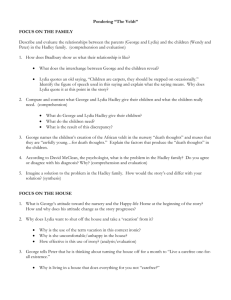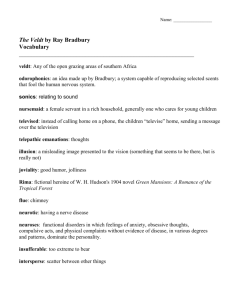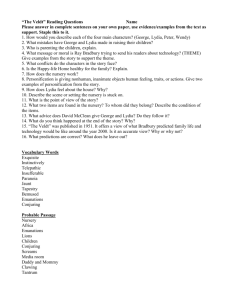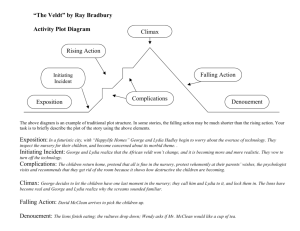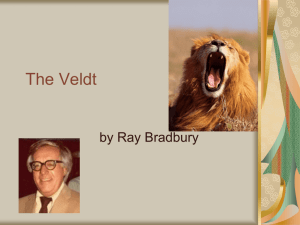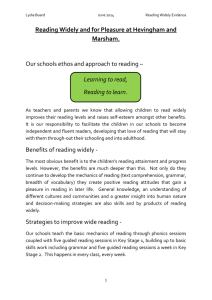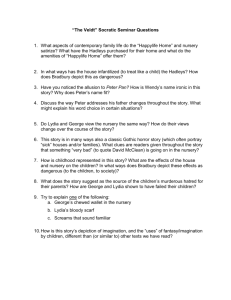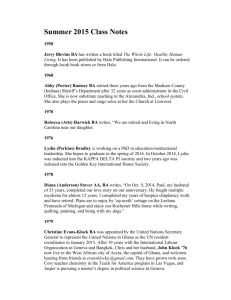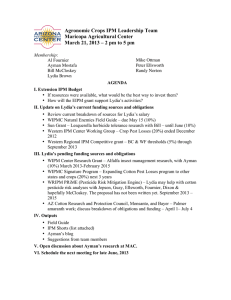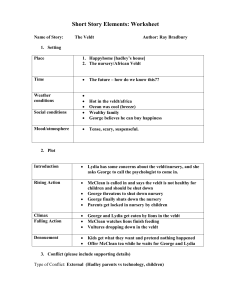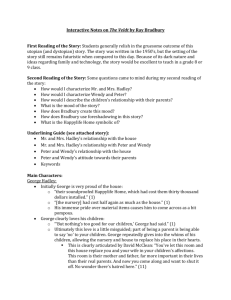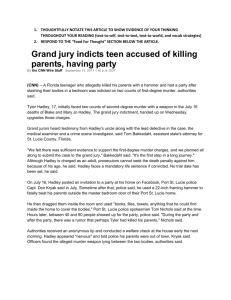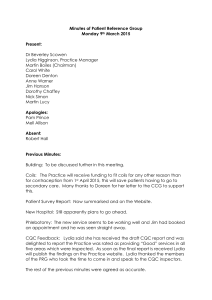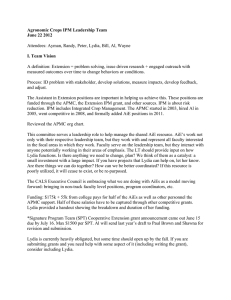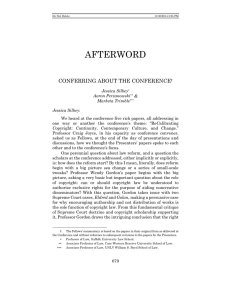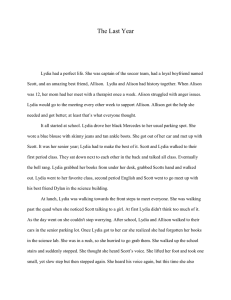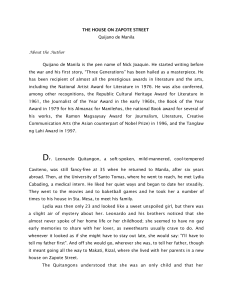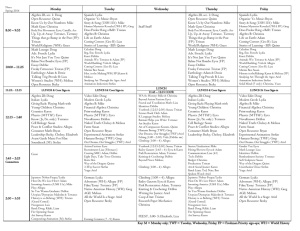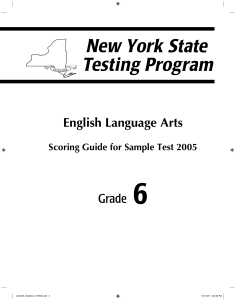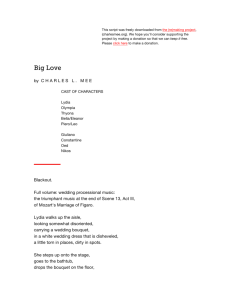The Veldt Questions
advertisement
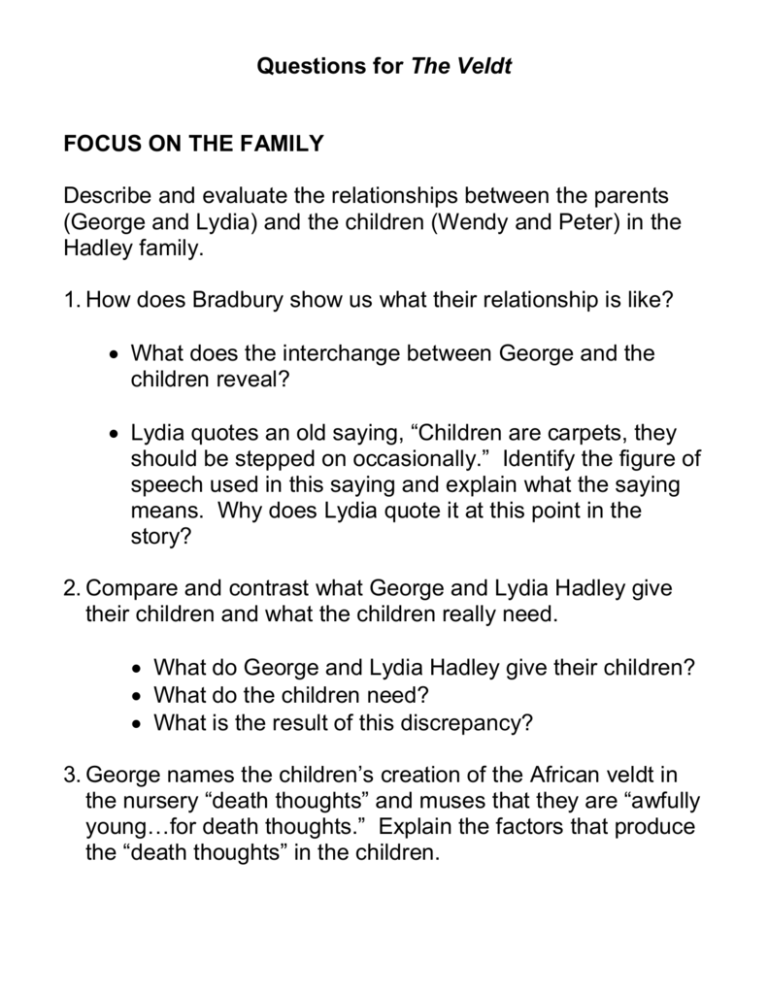
Questions for The Veldt FOCUS ON THE FAMILY Describe and evaluate the relationships between the parents (George and Lydia) and the children (Wendy and Peter) in the Hadley family. 1. How does Bradbury show us what their relationship is like? What does the interchange between George and the children reveal? Lydia quotes an old saying, “Children are carpets, they should be stepped on occasionally.” Identify the figure of speech used in this saying and explain what the saying means. Why does Lydia quote it at this point in the story? 2. Compare and contrast what George and Lydia Hadley give their children and what the children really need. What do George and Lydia Hadley give their children? What do the children need? What is the result of this discrepancy? 3. George names the children’s creation of the African veldt in the nursery “death thoughts” and muses that they are “awfully young…for death thoughts.” Explain the factors that produce the “death thoughts” in the children. 4. According to David McClean, the psychologist, what is the problem in the Hadley family? Do you agree or disagree with his diagnosis? Why? 5. Imagine a solution to the problem in the Hadley family. How would the story’s end differ with your solution? FOCUS ON THE HOUSE 1. What is George’s attitude toward the nursery and the Happylife Home at the beginning of the story? How and why does his attitude change as the story progresses? 2. Why does Lydia want to shut off the house and take a ‘vacation’ from it? Why is the use of the term vacation in this context ironic? Why is she uncomfortable/unhappy in the house? How effective is this use of irony? 3. George tells Peter that he is thinking about turning the house off for a month to “Live a carefree one-for-all existence.” Why is living in a house that does everything for you not “carefree?” FOCUS ON THEME 1. Peter says, “I wish you were dead!” George responds by saying, “We were, for a long while. Now we’re going to really start living. Instead of being handled and massaged, we’re going to live.” Define what it means for George to “really live.” How does his definition of living compare with your understanding of what it means to really live? Why is this interchange ironic? How effective is this use of irony? 2. Evaluate the end of the story. Why is the last line as follows: “A cup of tea?” asked Wendy in the silence. What point is Bradbury trying to make? Do you think it is an effective way to end the story? Why or why not? What is the irony? How effective is this use of irony? What is the theme of the story?
